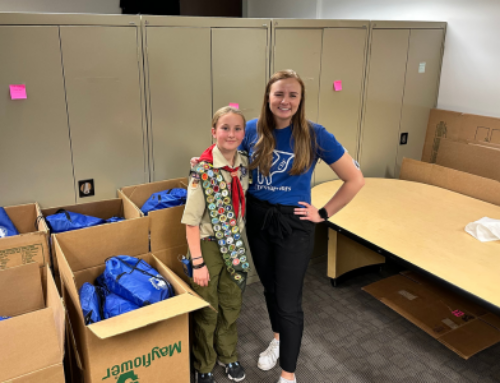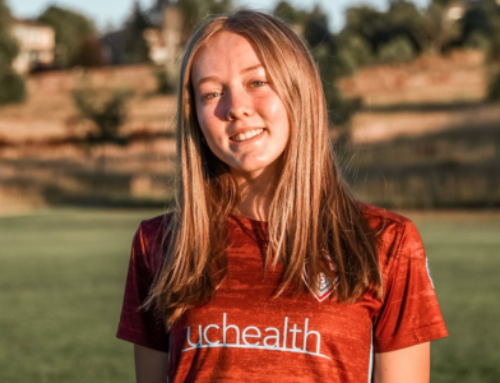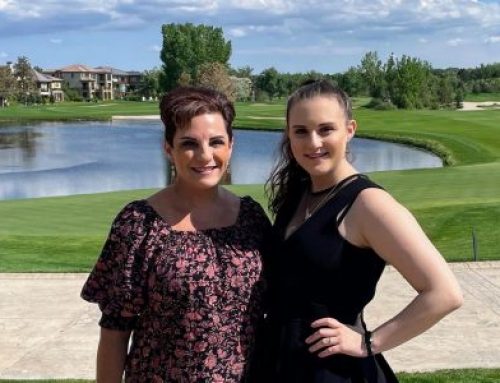I am Scott Fowle and my son was diagnosed with Type 1 Diabetes when he was six years old. John is now fifteen and this summer, we sent him to a week-long overnight camp by himself for the first time. This camp was geared towards the outdoors, not diabetes, so I was a little hesitant to entrust his care to people who might not understand the complexities of diabetes care.nnJohn and I have always gone to summer camp together. I became a scout leader so I could experience scouting with him, but also to keep an eye on his blood sugars. Each summer, I would take a week from work and the two of us would head to the mountains for camp. This allowed me to continue his midnight and 2 a.m. checks and to balance the activity levels against the s’mores. First grade, Second, Third, Fourth, every year until 10th grade. Each activity would affect his blood sugar differently: Rock Climbing: high. Swimming: low. Horseback riding: high.nn To make matters worse, the food was never the same. They rarely had an accurate carb count, which always creates a questionable guessing game. How many carbs in a Chicken Fried Steak? A biscuit? This only got worse as the teen years started and he was able to eat incredible proportion sizes that could only be explained by magic.nnOn one of our shared camping adventures, John went on a special one-night backpack trip just outside of our base camp. Just before bed, I went to check on him. He was 60 just after he had eaten. We tried gels to raise his blood sugars since they were smaller and easier to carry on the backpack overnight, but the consistency of the gels, in combination with the low, made him sick. He couldn’t keep anything down. My mind was racing through the scenario where I would have to ride back to camp for juice or escape to the hospital to get him emergency care. These rescue attempts are much more difficult when you’re backpacking in the woods with limited reception and resources. I couldn’t imagine what would happen if I wasn’t there in case of an emergency. The thought of leaving John on his own at a camp was nothing short of terrifying.nnBut at fifteen, maybe it was time (or past time) to stop hovering, and let our highly responsible, almost eagle-scout figure it out on his own. We had sent our two (non T1) daughters to a church-led, mountain-top, outdoor adventure camp the prior year, and it was an experience we wanted for John
To make matters worse, the food was never the same. They rarely had an accurate carb count, which always creates a questionable guessing game. How many carbs in a Chicken Fried Steak? A biscuit? This only got worse as the teen years started and he was able to eat incredible proportion sizes that could only be explained by magic.nnOn one of our shared camping adventures, John went on a special one-night backpack trip just outside of our base camp. Just before bed, I went to check on him. He was 60 just after he had eaten. We tried gels to raise his blood sugars since they were smaller and easier to carry on the backpack overnight, but the consistency of the gels, in combination with the low, made him sick. He couldn’t keep anything down. My mind was racing through the scenario where I would have to ride back to camp for juice or escape to the hospital to get him emergency care. These rescue attempts are much more difficult when you’re backpacking in the woods with limited reception and resources. I couldn’t imagine what would happen if I wasn’t there in case of an emergency. The thought of leaving John on his own at a camp was nothing short of terrifying.nnBut at fifteen, maybe it was time (or past time) to stop hovering, and let our highly responsible, almost eagle-scout figure it out on his own. We had sent our two (non T1) daughters to a church-led, mountain-top, outdoor adventure camp the prior year, and it was an experience we wanted for John  also. They had a pediatrician, which made us feel much better. She was not the “juice fairy” from diabetes camp, but she had no major concerns and the camp directors were up for it too. After meeting with them several times and going through our normal training course with them, they were undeterred and even excited for John. So, we let go. We prayed a lot. We slept a little. And in the end, John had a fabulous experience. Through all of the climbing, hiking, and whitewater rafting, he had managed his own diabetes incredibly well.nnSome of the things that we were 100% essential to our survival:n
also. They had a pediatrician, which made us feel much better. She was not the “juice fairy” from diabetes camp, but she had no major concerns and the camp directors were up for it too. After meeting with them several times and going through our normal training course with them, they were undeterred and even excited for John. So, we let go. We prayed a lot. We slept a little. And in the end, John had a fabulous experience. Through all of the climbing, hiking, and whitewater rafting, he had managed his own diabetes incredibly well.nnSome of the things that we were 100% essential to our survival:n
n
- The knowledgeable and devoted camp staff
n
- The daily text or email from the camp with brief updates to keep our minds occupied
n
- A training session for the staff prior to the camp
n
- A Medtronic CGM and pump
n
- Juice (and lots of it)
n
- One bright, courageous and brave young man who has lived with Type 1 for longer than he can remember!
n
n








